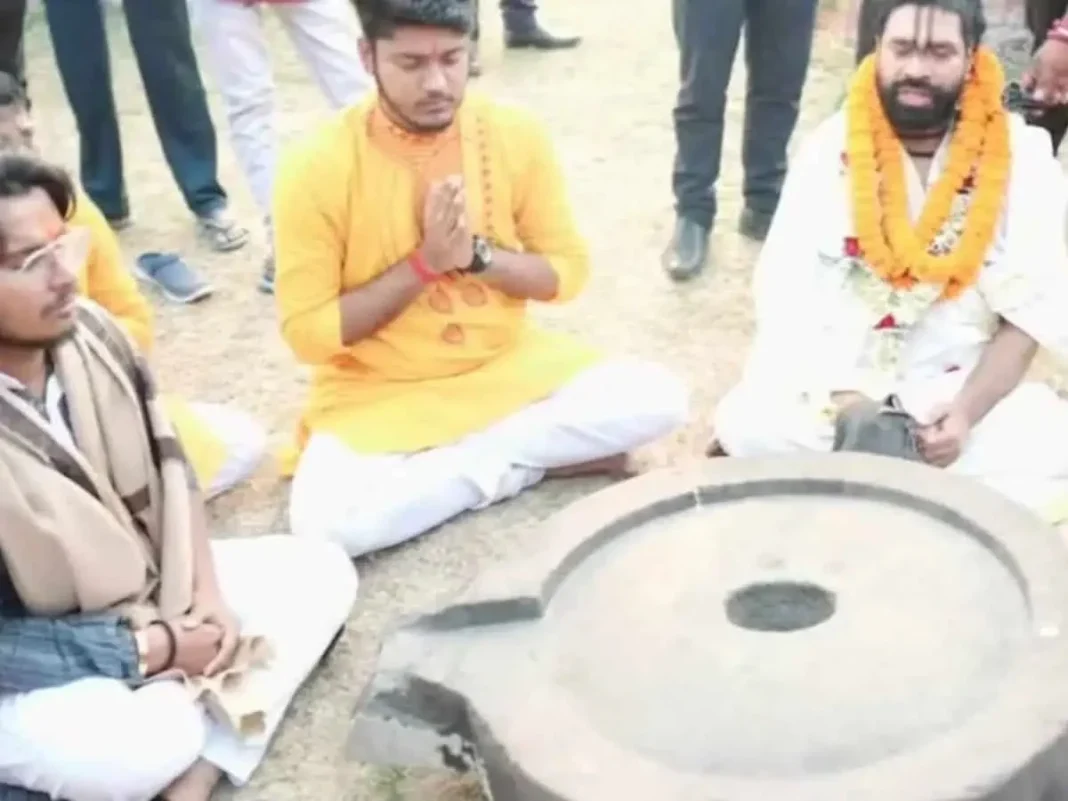In a bold move that sparks controversy, a self-proclaimed Hindu priest conducts a puja within the sacred walls of a 14th-century mosque in Bengal.
KOLKATA- Amidst the tranquil yet historically charged atmosphere of Bengal’s architectural wonders, a tumultuous event has unfurled, shaking the very foundations of religious harmony and historical preservation. This incident revolves around the audacious actions of a self-proclaimed Hindu priest who dared to conduct a puja, a Hindu religious ritual, within the hallowed premises of the Adina Mosque, a revered 14th-century architectural marvel, situated in the vicinity of Pandua, Malda district.
According to the reports by Siasat, the purported priest trespassed into the historically significant site accompanied by a group of devotees, where he proceeded to perform the ritualistic worship, invoking the ire of local residents and religious authorities alike. The sacrilegious act, seen as a flagrant disregard for the sanctity of the mosque, promptly incited tensions within the community, leading to an eruption of discontent and demand for accountability.
Local authorities swiftly responded to the uproar, initiating legal action against the accused. An FIR (First Information Report) has been filed against the self-proclaimed priest and his cohorts, as reported by Sabrang India, under various sections of the law, including those concerning intentional insult with intent to provoke breach of the peace and acts intended to outrage religious feelings. This legal recourse underscores the gravity with which the incident is being treated, emphasizing the imperative of upholding communal harmony and respecting cultural heritage.
In the aftermath of the contentious event, diverse voices have emerged, each offering a unique perspective on the incident and its broader implications. Some view the incident through the lens of religious intolerance, decrying the blatant disregard for the sentiments of the Muslim community and the desecration of a site held sacred for centuries. Others perceive it as a manifestation of political machinations, exploiting religious sentiments for divisive ends and stoking communal tensions for narrow gains.
However, amidst the cacophony of opinions, there are those who advocate for a nuanced understanding of the situation, emphasizing the need for dialogue and mutual respect to bridge the chasm of misunderstanding and foster genuine harmony. They argue that while religious differences may persist, they need not be a source of discord and animosity, urging for a collective effort towards tolerance and coexistence.
The incident at the Adina Mosque serves as a sobering reminder of the delicate balance between religious freedom and communal harmony in a diverse and pluralistic society. It underscores the imperative of safeguarding historical sites as repositories of shared heritage, transcending religious boundaries and embodying the collective identity of a nation. As the legal proceedings unfold and the community grapples with the aftermath, it is incumbent upon all stakeholders to heed the lessons of history and strive towards a future characterized by understanding, respect, and solidarity.

